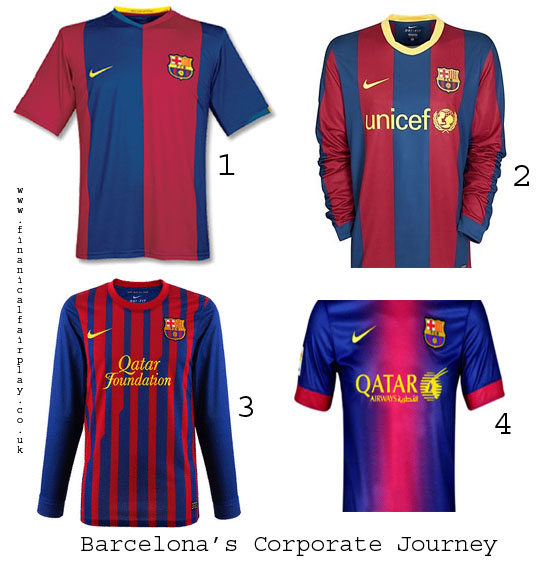Two of the Premier League's top clubs are sponsored by airlines based in the UAE. Arsenal are sponsored by 'Emirates air line', based in Dubai, whilst Manchester City are sponsored by 'Etihad airways' based in Abu Dhabi.
By way of background, the UAE is roughly the size of Ireland and is a federation of seven emirates (equivalent to principalities), each governed by a hereditary emir with a single national president. The constituent emirates are Abu Dhabi, Dubai, Ajman, Fujairah, Ras al Khaimah, Sharjah and Umm-al-Quwain. Although around 8m people live in UAE, less than a million have rights as UAE 'citizens'. Migrants make up about 80% of the resident population, and about 90% of the workforce.
So why does a country with less than a million citizens have two of the world's largest airlines and why do they pay so much to have their name on Arsenal and City's shirts?
Both airlines are owned by the state/ruling family and exist for largely geopolitical reasons. It is debatable whether either airline makes a genuine profit and each serves to promote the UAE state and their own principality on the world stage. The airlines promote a image of luxury and sophistication and operate as a lavish PR vehicle for their state.
The UAE state sees sport as a key strategic tool where friendly media coverage is almost guaranteed. The UAE hosts richly rewarded events in a huge number of sports. You might want to look at the 'UAE sports news' dropdown on this site to get the full picture: http://www.uae-sport-guide.com/ .
Although the UAE is a beacon of enlightenment compared to it's Saudi neighbour, the country is not without it's critics. Human Rights Watch draw attention to its lack of democracy, the poor treatment of migrant works, the crackown on dissent, the arrest of bloggers, alleged arrests for homosexuality, close-door trials without appeal, and poor women's rights.
The commercial tie-ins at Arsenal and City raises key questions for the Premier League of whether state sponsorship of a football club (which is essentially what we have at Arsenal and City) is desirable. With the drive to maximise income and the onset of FFP rules, the clubs will always welcome the cash, but perhaps we should be asking where we should draw the line.
Although Formula 1 rather brazenly staged a Grand Prix against a backdrop of brutal repression in Bahrain, would it be appropriate for a football team to proudly display the logo of Bahrain's state run Gulf Air or Bahrain Air? Interestingly, QPR were sponsored by Gulf Air until 2011 and fortunately had changed sponsorship before the recent crackdown on dissent. This was a very narrow escape for the Premier League - if the sponsorship had still been in place at the time of the mass arrests, QPR and the Premier League would have faced some tough decisions.
It is interesting to ponder, for example, whether Saudi air would be an appropriate Premier League sponsor? What about Iranair or Myanmar airlines? What about Barcelona's new shirt sponsors Qatar airways? Although Qatar are set to host the World Cup, homosexuality is illegal (although that hasn't stopped PSG becoming owned and sponsored by the Qatar sovereign wealth fund).
It is difficult to know what would make a national sponsor be considered 'unacceptable'. Perhaps we shouldn't have to wonder whether a nation's values are acceptable as a football club sponsor? Fundamentally, state sponsorship of Premier League clubs doesn't seem a desirable route to go down - perhaps it time to for the Premier League to turn away the cash from all state-run, state-promoting sponsors.
Meanwhile, over at The Emirates....
For more information on sport in Dubai, this piece by Kevin Garside is interesting (and it has a great photograph) 
